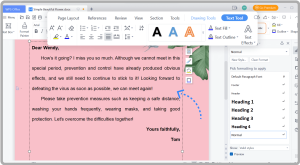In an era increasingly defined by intelligent automation, the integration of artificial intelligence into business operations is no longer a novelty—it is fast becoming a necessity. For organisations looking to stay ahead of the curve, access to expert AI developers and cutting-edge models offers a powerful strategic advantage. However, navigating the complexities of AI development, from selecting the right architecture to ensuring responsible implementation, requires not only technical depth but also deep domain knowledge. A dedicated platform that enables businesses to hire seasoned AI developers and gain access to the latest models significantly reduces these barriers, offering a streamlined pathway to innovation and scalability.
AI development is not a one-size-fits-all endeavour. The needs of a fintech start-up, for instance, differ dramatically from those of a logistics company or a healthcare provider. Expertise in AI is also broad and specialised—ranging from machine learning engineers skilled in natural language processing to data scientists focused on predictive analytics. When using a platform designed specifically to match these experts with relevant projects, businesses are empowered to assemble tailored teams with precision. This eliminates the inefficiencies of traditional hiring, where generic recruitment agencies often lack the insight to identify the right technical capabilities, and allows for faster deployment and results.
Furthermore, platforms like Botpool – www.botpool.ai/ – that centralise access to both AI talent and advanced models serve as hubs of innovation. They bring together engineers, data scientists, and businesses into a collaborative ecosystem. This synergy fuels knowledge-sharing and accelerates the iteration cycle, reducing the time it takes to go from idea to deployment. Instead of building everything from scratch, companies can build upon tested models and architectures, tweaking and tuning them to fit specific use cases. The availability of reusable, high-quality models drastically shortens development timelines, increases reliability, and encourages experimentation without the prohibitive costs usually associated with custom AI solutions.
Another critical advantage lies in the scalability of resources. AI development projects often require different levels of engagement at various stages—from intense development periods during proof-of-concept and training phases to lighter involvement during monitoring and maintenance. A flexible platform-based hiring approach allows organisations to scale their teams up or down as needed, without the long-term commitment and overhead of full-time hiring. This agility is particularly important in the current economic landscape, where uncertainty is high and adaptability is a prized asset.
Additionally, security and compliance play a major role in modern AI deployment, especially in industries that handle sensitive data. When working with verified experts via a reputable platform, businesses gain the assurance that best practices in data handling, privacy, and model governance are being observed. These developers are typically accustomed to working within stringent regulatory frameworks and can help companies design systems that are secure by default. Moreover, many platforms include built-in compliance checks and auditing tools, offering an added layer of confidence for organisations managing risk-sensitive operations.
Access to the latest models is another transformative feature. AI is an area of rapid advancement, with models growing increasingly complex and capable. Staying up to date requires more than simply downloading the latest release—it demands the skill to fine-tune and deploy these models efficiently and ethically. Through a dedicated platform, organisations can test and adopt state-of-the-art models across various domains, from language generation to computer vision, without investing heavily in infrastructure or R&D. This democratises access to innovation, enabling even smaller enterprises to leverage powerful AI tools previously only within reach of tech giants.
Working with expert developers also minimises the risk of project failure. AI is notoriously difficult to implement successfully; issues such as biased datasets, overfitting, underperforming models, and unclear KPIs can derail projects before they deliver meaningful value. Experts can anticipate these challenges and apply proven methodologies to overcome them. Whether it’s establishing robust data pipelines, designing transparent model architectures, or incorporating human-in-the-loop feedback systems, experienced professionals are equipped to manage the full lifecycle of AI projects. This reduces wasted time and resources and increases the likelihood of achieving measurable outcomes.
Moreover, the platform model fosters continuous learning and improvement. With access to a broader pool of developers working across diverse sectors, organisations benefit from cross-industry insights. An AI technique that’s proven effective in retail demand forecasting might be adapted creatively for supply chain management in manufacturing. These synergies often emerge organically within platform ecosystems, where collaboration and open exchange are encouraged. This constant flow of new ideas helps businesses not only solve existing problems but also uncover new opportunities for optimisation and innovation.
The pace of development in AI also means that talent acquisition must be forward-looking. Today’s in-demand skills could evolve rapidly as new paradigms and tools emerge. Hiring through a platform allows companies to stay ahead of this curve by engaging with developers who are continuously upskilling and immersed in cutting-edge work. Unlike in-house teams that may become siloed or outdated over time, a platform-centric strategy ensures exposure to the most current thinking in AI. This future-proofs investment and promotes a culture of adaptability and resilience.
In terms of cost-effectiveness, using a platform to hire AI experts and access ready-to-use models often proves more economical than traditional methods. Building an in-house AI team involves significant investment—not only in salaries but also in training, software, cloud infrastructure, and compliance mechanisms. A platform eliminates many of these upfront costs and offers a pay-as-you-go model where resources can be allocated judiciously. This allows businesses to experiment more freely and iterate quickly without the fear of sunk costs. It is a model that rewards efficiency, flexibility, and performance.
Equally important is the empowerment of internal teams. Collaborating with external AI specialists can upskill existing staff and enhance their understanding of intelligent systems. Knowledge transfer is a natural outcome of such partnerships, as internal teams observe best practices in action and participate in decision-making. This boosts overall organisational competence in AI and builds a stronger foundation for future initiatives. When employees are involved in AI projects from the ground up, they are more likely to champion and adopt these solutions, leading to smoother implementation and greater business impact.
In conclusion, a platform that brings together expert AI developers and advanced models is far more than a convenient hiring solution—it is a strategic accelerator for digital transformation. By offering access to top-tier talent, cutting-edge technology, and scalable workflows, such platforms empower businesses to harness the true potential of AI. They simplify complex development processes, reduce costs, mitigate risks, and unlock opportunities that were previously out of reach. For organisations serious about innovation and competitive advantage, adopting this model is not just advantageous—it is imperative.




